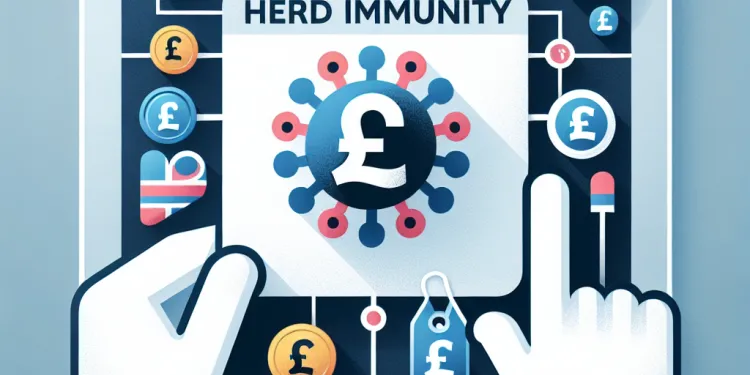
Find Help
More Items From Ergsy search
-
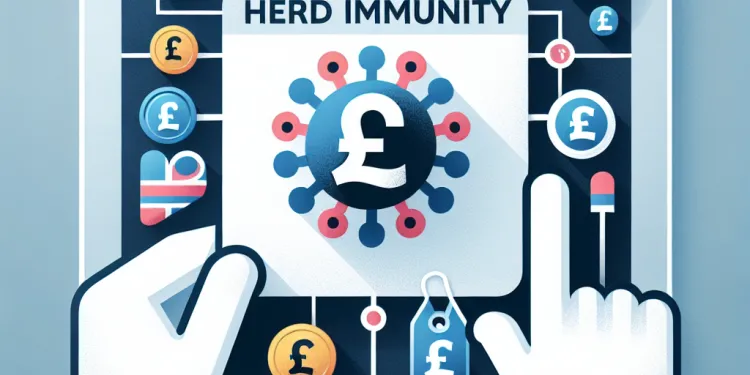
What is herd immunity?
Relevance: 100%
-
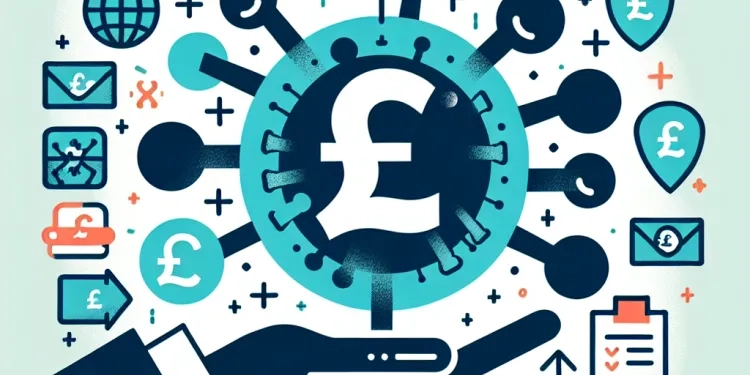
What is herd immunity?
Relevance: 100%
-
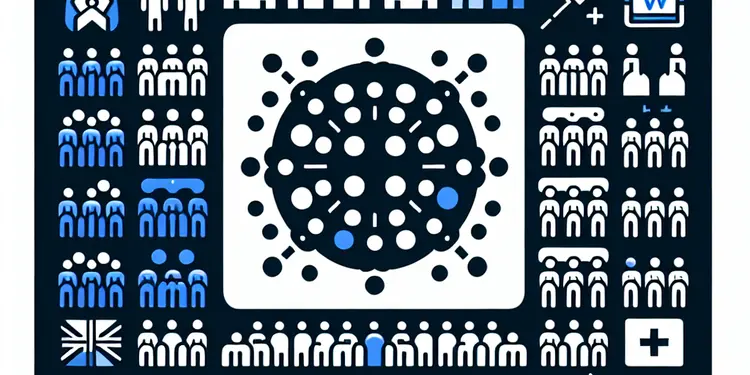
What is herd immunity and how does it relate to measles?
Relevance: 83%
-
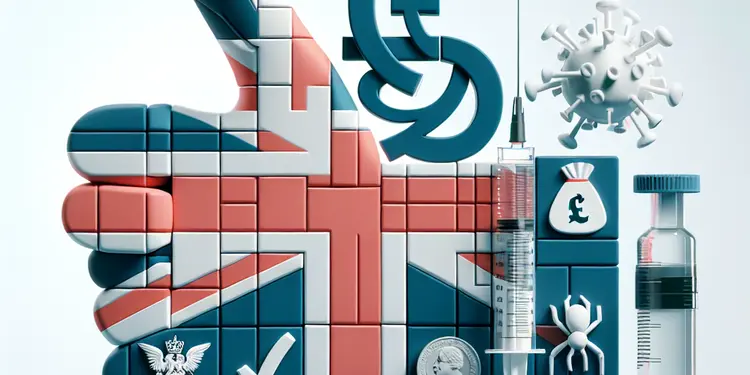
Are there vaccination recommendations for people with compromised immune systems?
Relevance: 41%
-
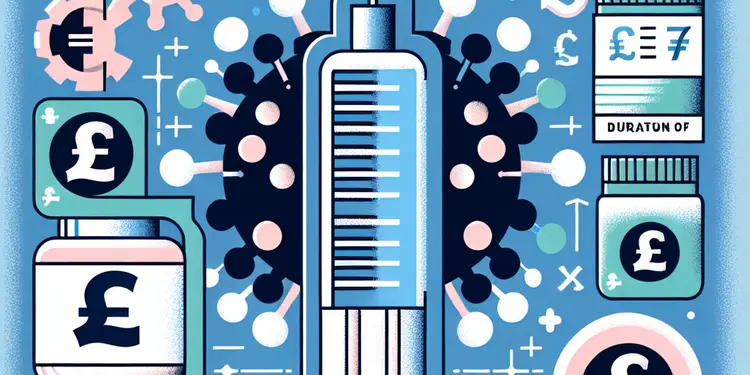
How long does immunity last after getting the COVID jab?
Relevance: 38%
-

Is there a connection between cortisol and the immune system?
Relevance: 37%
-

Can using sunbeds boost my immune system?
Relevance: 34%
-
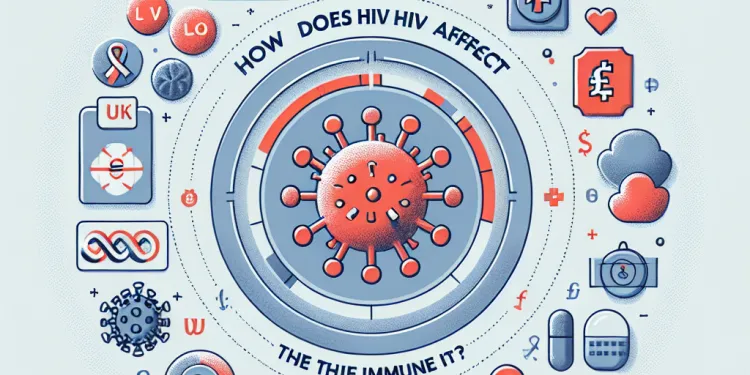
How does HIV affect the immune system?
Relevance: 34%
-
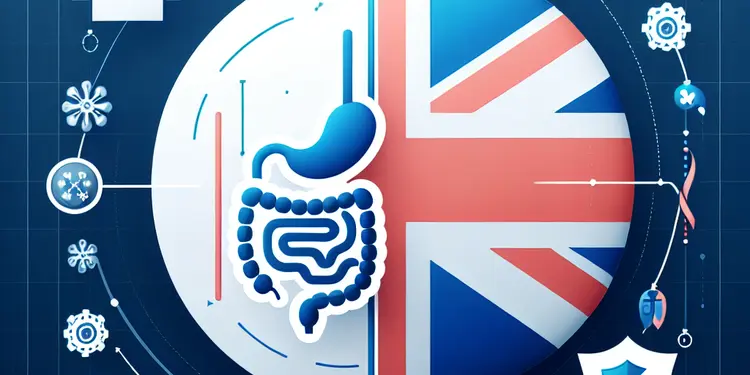
Can gut health influence the immune system in aging individuals?
Relevance: 33%
-

How does vaccination affect measles rates?
Relevance: 31%
-
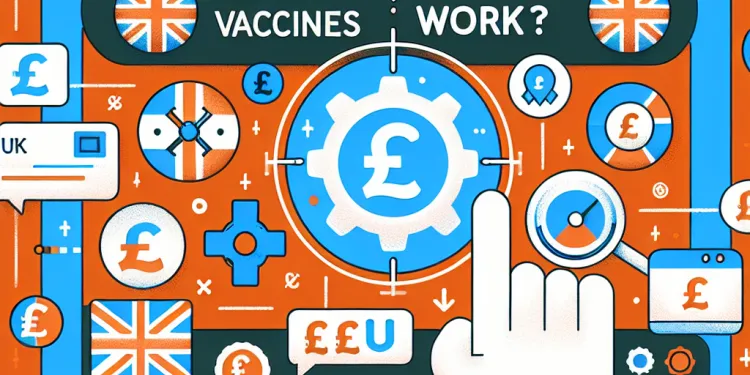
How do vaccines work?
Relevance: 29%
-
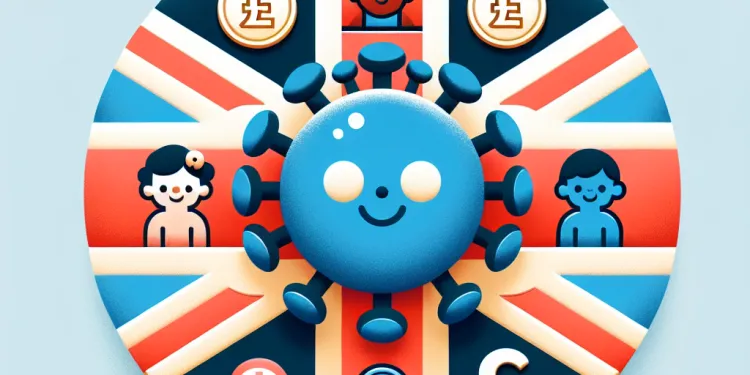
Can chickenpox be prevented?
Relevance: 29%
-
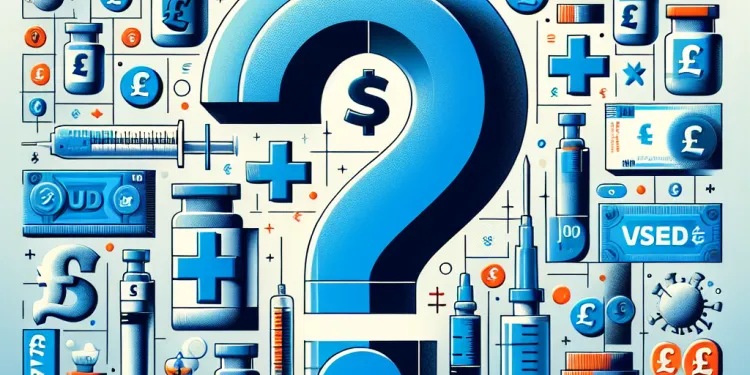
What is a vaccine?
Relevance: 28%
-
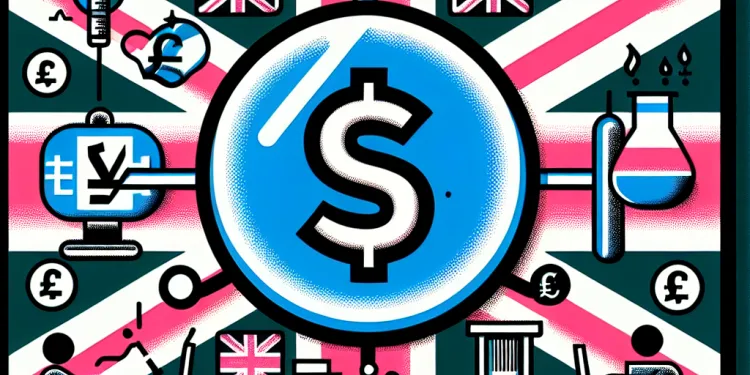
Why do vaccinated people sometimes still get sick?
Relevance: 28%
-
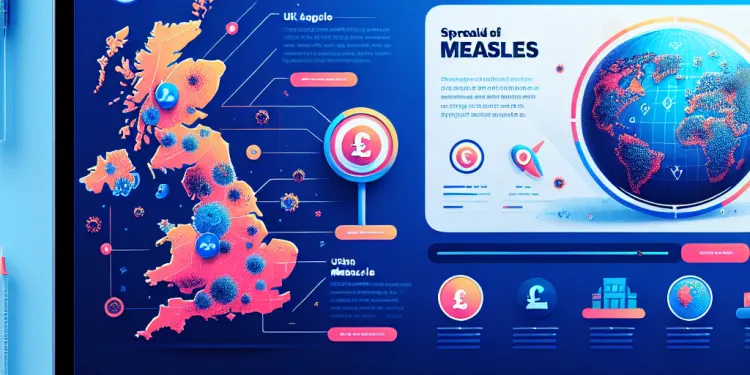
Are measles more common outside of the UK?
Relevance: 28%
-
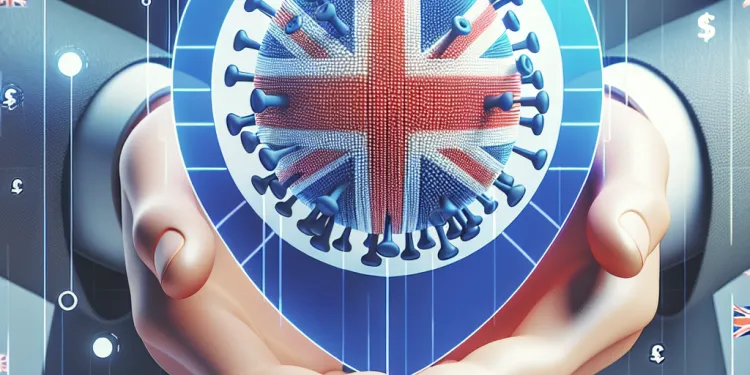
Can Rubella be prevented?
Relevance: 25%
-

What are vaccines and how do they work?
Relevance: 25%
-
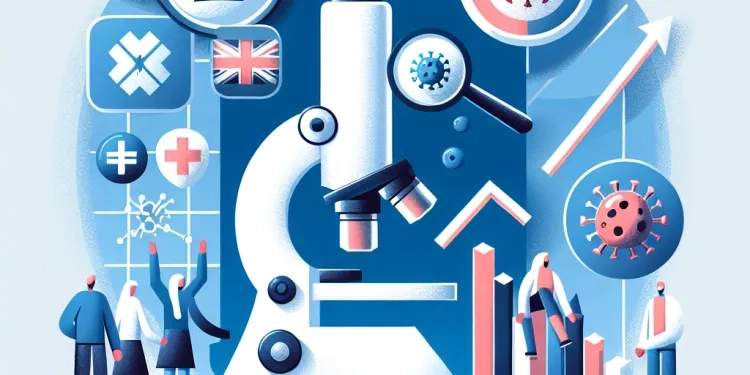
Why is measles less common in the UK?
Relevance: 25%
-
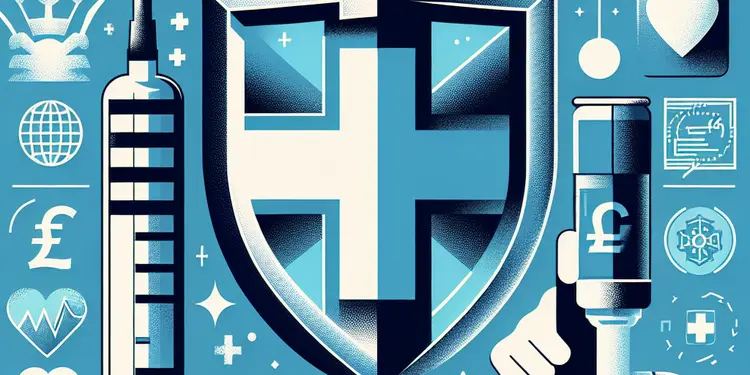
How effective is the MMR vaccine?
Relevance: 25%
-
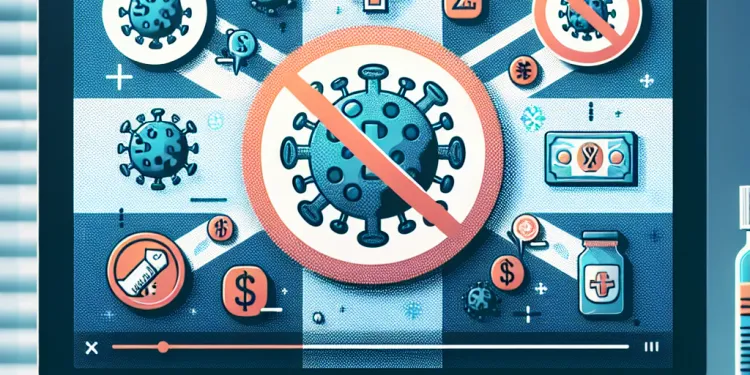
How can measles be prevented?
Relevance: 25%
-
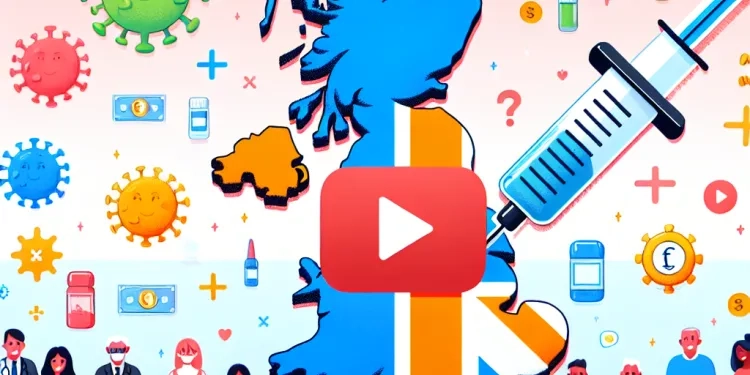
What is the current measles vaccination coverage in the UK?
Relevance: 24%
-

Can you become immune to Botox?
Relevance: 24%
-
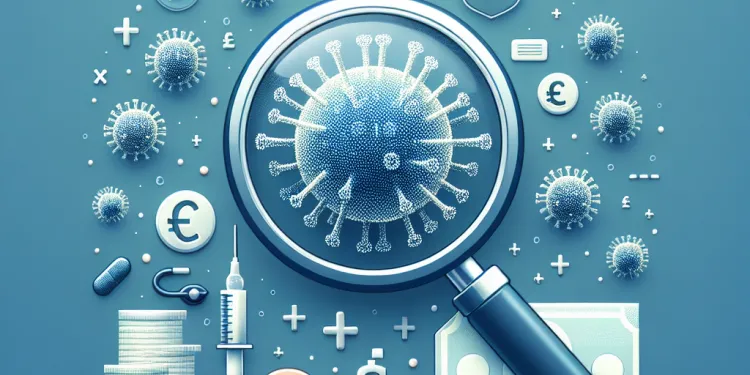
Why are measles outbreaks still occurring?
Relevance: 23%
-
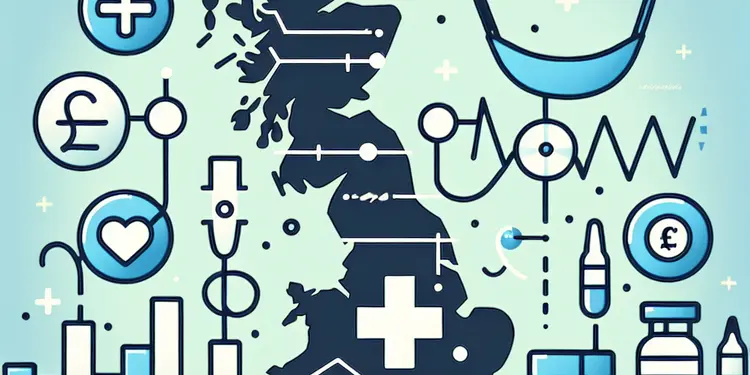
What is causing the rise in measles cases in the UK?
Relevance: 23%
-
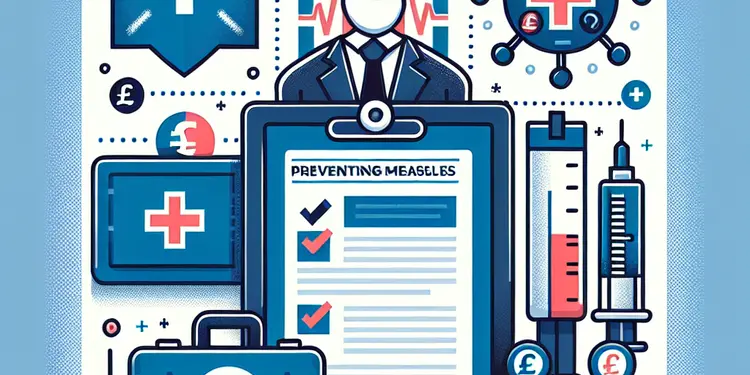
How can measles outbreaks be prevented?
Relevance: 23%
-

How important is it to get a flu vaccine in 2026?
Relevance: 22%
-
What are the benefits of getting a COVID jab?
Relevance: 22%
-
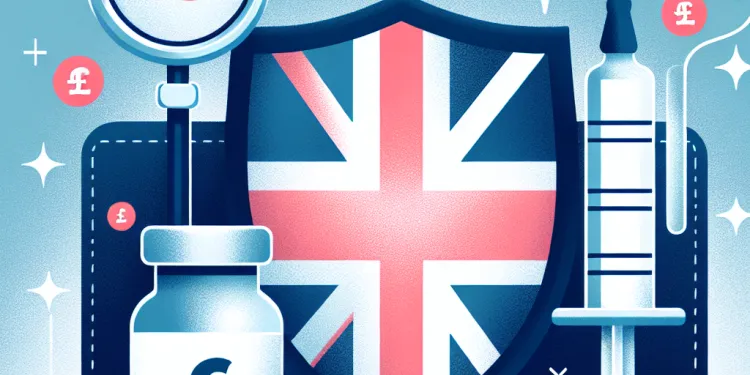
Why are vaccines important?
Relevance: 21%
-
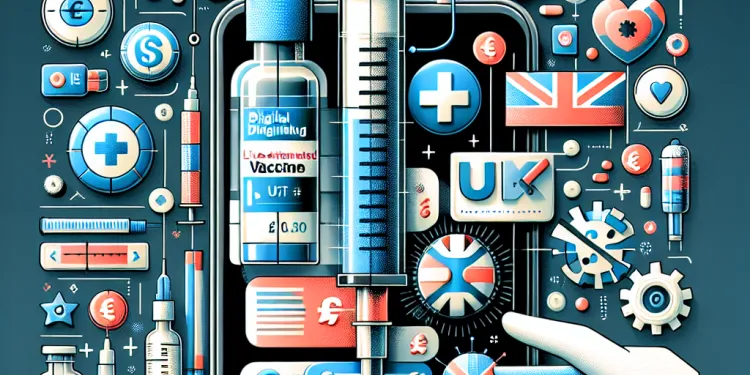
What is a live-attenuated vaccine?
Relevance: 21%
-
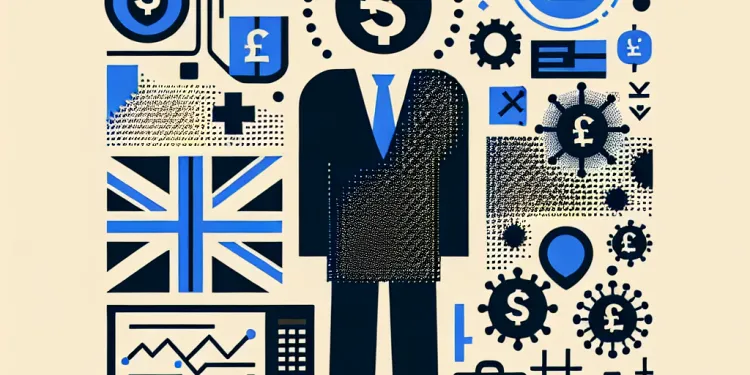
Can measles be serious?
Relevance: 21%
-
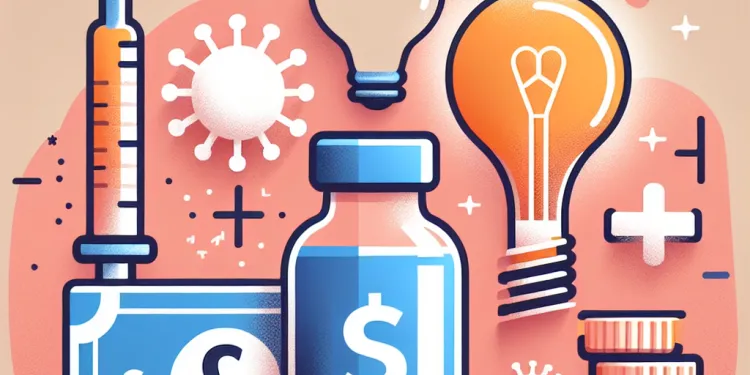
Are vaccines linked to autism?
Relevance: 20%
-
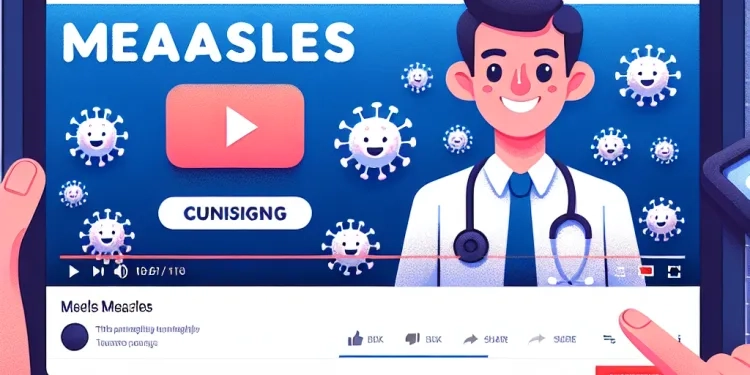
Measles
Relevance: 20%
-

How contagious is measles?
Relevance: 20%
-
How do COVID jabs work?
Relevance: 19%
-

Is the flu jab necessary for healthy individuals?
Relevance: 19%
-
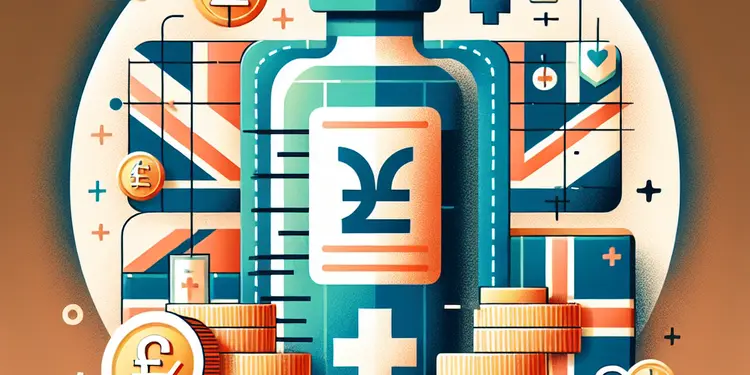
What is the MMR vaccine?
Relevance: 19%
-
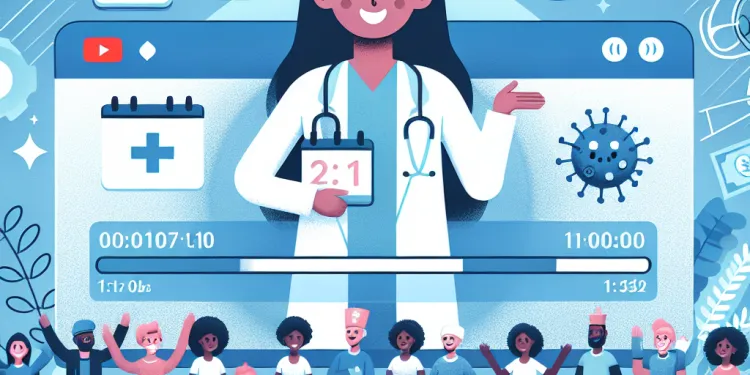
How long is a person with measles contagious?
Relevance: 18%
-
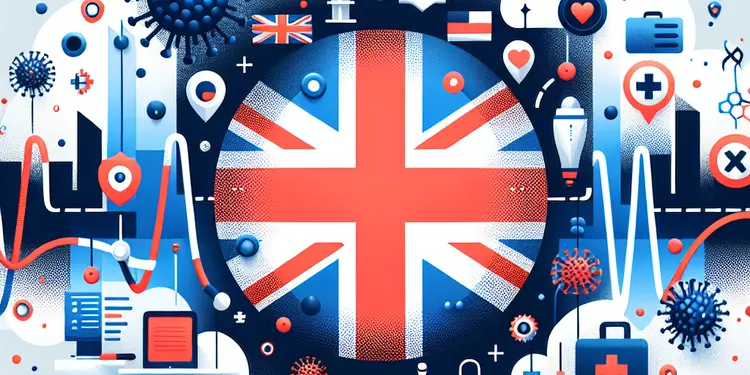
Why has the UK lost its measles elimination status?
Relevance: 18%
-

Are measles cases currently rising in the UK?
Relevance: 17%
-
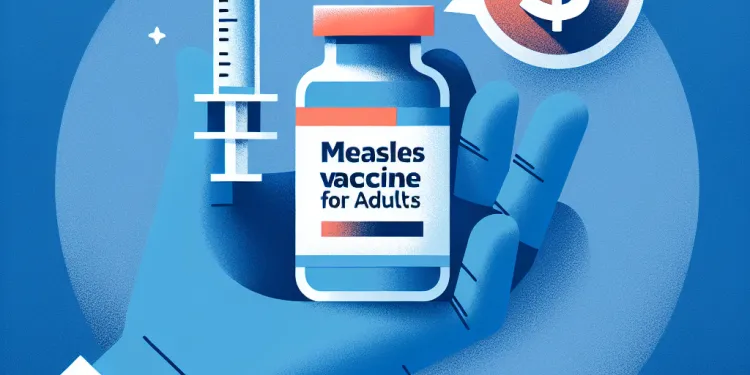
Can the measles vaccine be given to adults?
Relevance: 17%
Understanding Herd Immunity
Herd immunity, also known as "community immunity," is a form of indirect protection from infectious diseases that occurs when a significant proportion of a population becomes immune to an infection, thereby reducing the likelihood of disease spread. This immunity can be achieved through previous infections or vaccinations. When a large part of the population is immune, the infection has fewer opportunities to spread, thus offering protection to individuals who are not immune.
The Importance of Vaccination
Vaccination plays a crucial role in achieving herd immunity. When enough people in a community are vaccinated against a contagious disease, it becomes challenging for the disease to spread, as there are fewer available hosts. This protective barrier helps safeguard those who cannot be vaccinated, such as newborns or individuals with certain medical conditions that weaken their immune systems.
Threshold for Herd Immunity
The level at which herd immunity is reached depends on the disease. Infectious diseases have different reproduction numbers, known as the R number, which indicates how many people, on average, one infected person will pass the disease to. Measles, for instance, has a high R number, thus requiring approximately 95% of the population to be immune to achieve herd immunity. In contrast, diseases with lower R numbers need a smaller proportion of immune individuals to reach that threshold.
Herd Immunity and COVID-19
During the COVID-19 pandemic, herd immunity became a frequently discussed topic. The aim was to achieve a level of population immunity that would slow the spread of SARS-CoV-2, the virus causing COVID-19. Vaccination campaigns have been critical in moving towards herd immunity by ensuring a large segment of the population gains immunity, either through vaccination or prior infections. However, new variants of the virus add complexity, as they might spread more easily or evade immune protection to some degree, altering the herd immunity threshold.
Challenges and Misconceptions
There are challenges and misconceptions about achieving herd immunity, particularly the misunderstanding that it means no one will get sick. Herd immunity reduces disease spread but does not guarantee complete protection for everyone. Furthermore, relying solely on natural infection to achieve herd immunity can result in overwhelming healthcare systems and many preventable deaths. Vaccination is a safer, more controlled approach to achieving community-wide protection.
Conclusion
Herd immunity is a critical aspect of public health strategies aimed at controlling infectious diseases. By achieving a high level of immunity within a population, we protect the most vulnerable and reduce the incidence of the disease. For the UK and beyond, vaccination remains the safest and most effective path towards achieving herd immunity, ensuring community health and wellbeing.
Understanding Herd Immunity
Herd immunity is also called "community immunity." It helps protect us from diseases. This happens when many people in a group become immune to a disease. Being immune means you can fight off the disease and not get sick. This can happen through vaccines or after you recover from the disease. When many people are immune, the disease cannot spread easily. This keeps everyone safer, even those who are not immune.
The Importance of Vaccination
Getting vaccinated is very important for herd immunity. When many people get vaccinated, it becomes hard for the disease to spread. This is because there are fewer people for the disease to infect. This helps protect those who cannot get vaccines, like babies or people who are sick with other illnesses.
Threshold for Herd Immunity
The number of people needed to reach herd immunity depends on the disease. Each disease spreads differently. Some spread very easily, like measles. To stop measles, around 95 out of 100 people need to be immune. Other diseases spread less easily, so fewer people need to be immune.
Herd Immunity and COVID-19
During the COVID-19 pandemic, people talked a lot about herd immunity. The goal was to stop the virus from spreading by making many people immune. Vaccinations helped a lot with this. They are important because they help more people become immune. But the virus can change, and new types can spread more or be harder to stop. This makes it important to keep getting vaccinated.
Challenges and Misconceptions
Some people think herd immunity means nobody gets sick, but this is not true. It only means fewer people get sick. If we just let diseases spread to get herd immunity, many people could die. Vaccines are the safer way to protect everyone.
Conclusion
Herd immunity is very important to keep us healthy from diseases. When many people in a community are immune, the disease is less likely to spread. Vaccines are the best way to reach herd immunity. They keep us and the community safe and healthy.
Frequently Asked Questions
What is herd immunity?
Herd immunity occurs when a large portion of a community becomes immune to a disease, making the spread of the disease from person to person unlikely.
How is herd immunity achieved?
Herd immunity can be achieved through widespread vaccination or previous infection with a disease, leading to immunity in a significant portion of the population.
Why is herd immunity important?
Herd immunity is important because it helps protect those who are not immune, such as people who cannot be vaccinated due to medical reasons.
Can herd immunity be achieved naturally?
Natural herd immunity can occur when a large portion of the population becomes infected and develops immunity, but this can result in high numbers of illness and death.
What is the role of vaccines in herd immunity?
Vaccines play a critical role in achieving herd immunity by safely establishing immunity in individuals, reducing the spread of disease.
What percentage of a population needs to be immune to achieve herd immunity?
The percentage of the population that needs to be immune to achieve herd immunity varies depending on the disease's contagiousness; it's often between 70% and 90%.
Can herd immunity solve global pandemics?
Herd immunity can help control pandemics by reducing transmission, but achieving it without vaccines could lead to significant morbidity and mortality.
Does herd immunity eliminate a disease?
Herd immunity doesn't eliminate a disease, but it can significantly reduce its spread, especially among the most vulnerable groups.
Is herd immunity permanent?
Herd immunity is not always permanent as it can wane over time if immunity levels drop due to loss of immunity or new strains arising.
What challenges exist in achieving herd immunity?
Challenges include vaccine hesitancy, uneven vaccine distribution, and the potential for new variants to bypass immunity.
How does herd immunity protect unvaccinated individuals?
Herd immunity protects unvaccinated individuals by reducing the overall spread of the disease, lowering the likelihood of exposure to an infectious person.
Is herd immunity effective against COVID-19?
Herd immunity can help control COVID-19, but high vaccination rates and adherence to public health measures are necessary given the emergence of new variants.
Did other diseases achieve control through herd immunity?
Yes, diseases like measles and polio have been controlled in many regions through high vaccine coverage and herd immunity.
What happens when herd immunity levels are not met?
When herd immunity levels are not met, the disease continues to spread more easily, leading to outbreaks and increased cases.
Can herd immunity be lost?
Herd immunity can be lost if vaccination rates drop or new variants decrease vaccine efficacy, leading to renewed disease outbreaks.
How do variants affect herd immunity?
Variants that evade existing immunity can make it more difficult to maintain herd immunity, necessitating updates to vaccines.
What role do children play in herd immunity?
Children can play a crucial role in achieving herd immunity as they make up a significant portion of the population and can spread disease.
Is herd immunity possible without vaccines?
While technically possible, achieving herd immunity without vaccines would likely result in a high toll of illness and death, which is why vaccines are preferred.
How do public health measures interact with herd immunity?
Public health measures such as masking and social distancing support herd immunity efforts by reducing transmission while vaccination takes effect.
Can herd immunity change over time?
Herd immunity can change as population immunity levels fluctuate due to factors like waning immunity, population changes, and evolving pathogens.
What is herd immunity?
Herd immunity is when a lot of people in a group are safe from a sickness. This happens if many people get a vaccine or have already been sick and got better. If most people are safe, the sickness cannot spread easily.
Tools that can help understand this:
- Watch videos about herd immunity.
- Use picture books or comics that explain it.
- Talk to a doctor or teacher for more help.
Herd immunity happens when most people in a group can't get sick from a disease. This helps stop the disease from spreading to others.
How can we keep everyone safe from getting sick?
We can keep people safe from a disease when lots of them can't catch it. This is called "herd immunity."
Here is how we do it:
- Many people get a vaccine. A vaccine is a special medicine that helps the body fight a disease.
- When enough people get the vaccine, the disease can't spread easily.
- This helps protect people who can't have the vaccine, like some babies or people who are very sick.
If you need help reading, you can:
- Ask a friend or family member to read with you.
- Use a text-to-speech tool to listen to the words.
- Break down words you don’t know, and ask someone to explain them.
Herd immunity happens when lots of people are protected from a disease. This can happen when many people get a vaccine or when they have already had the disease before and can't get it again.
Why is it good for lots of people to be immune?
Herd immunity means protection. It helps keep everyone in a community safe from getting sick.
When lots of people are immune, it's harder for sickness to spread.
It also protects those who can't be immune. Some people, like babies, elderly, or those who are very sick, can't get vaccines.
Using pictures and simple charts can help explain this idea.
Videos can be a fun way to watch and learn more.
Herd immunity is important. It helps keep people safe who can't get shots to stop them from getting sick.
Can we all be safe from a disease without medicine?
Herd immunity means lots of people are safe from a disease. This helps protect people who can't fight the disease well. We can get immunity in two ways:
- By getting the disease and getting better. This is risky because the disease can make you very sick.
- By getting a vaccine. This is safer because the vaccine protects you without making you sick.
It's usually not safe to wait for everyone to become immune just by getting the disease. It can make many people sick or worse. Vaccines help make everyone safe without the risk.
Tools like pictures or videos can help explain these ideas better.
Herd immunity is when lots of people become safe from an illness. Natural herd immunity can happen when many people catch the illness and then become safe from it. But this can also mean lots of people get very sick or even die.
If you find reading hard, you can use tools that read aloud to you. Other helpful things include using pictures to explain things or breaking down information into smaller parts.
How do vaccines help everyone stay healthy?
Vaccines help to keep people safe from getting sick. They teach the body how to fight germs. When lots of people get their vaccines, it is hard for the germs to spread. This helps protect everyone, even those who can't get vaccines, like babies or sick people. You can use pictures, videos, or talk with someone to help understand this better.
Vaccines are very important. They help protect lots of people from getting sick. Vaccines make people strong against diseases, so fewer people get sick and germs don't spread easily.
How many people have to be safe from getting sick for everyone to be protected?
For lots of people to be safe from a disease, many must be immune. This is called herd immunity.
Herd immunity numbers are different for each disease.
Usually, 70% to 90% of people need to be immune to keep everyone safe.
Using pictures and videos can help you learn more about herd immunity.
Can herd immunity stop worldwide sickness?
Herd immunity means many people are safe from a sickness. This can stop the sickness from spreading.
When most people are safe, germs can't travel easily. This helps everyone stay well.
But getting herd immunity can be hard. People might need vaccines or to get sick and better.
Vaccines help our bodies fight germs. They are a good way to get safe from sickness.
Remember: Talk to a doctor or nurse if you have questions. They are there to help you!
Herd immunity can help stop the spread of disease. But if we try to get it without vaccines, many people could get sick or die.
Can herd immunity make a disease go away?
Herd immunity doesn't make a disease go away completely, but it can help slow down how fast it spreads. This is really important to keep the people who are most at risk safe.
Does herd immunity last forever?
No, herd immunity does not last forever. This means people can get sick again later.
Here are some things that can help:
- Get vaccines. They help keep you safe from illnesses.
- Wash your hands often to kill germs.
- Stay away from people who are sick.
Herd immunity can go away. This happens if people stop being immune or if new types of a disease appear.
What makes it hard to get herd immunity?
Herd immunity means lots of people are safe from a sickness.
Getting herd immunity can be tough because:
- Not everyone gets the vaccine.
- Some people can't get the vaccine because of health reasons.
- New germs can change, making it harder to stop the sickness.
- We need to protect lots of people to keep everyone safe.
To help understand better, you can use:
- Pictures or videos that explain vaccines and germs.
- Talking with a doctor or nurse who can answer questions.
There are some problems. Some people do not want the vaccine. Vaccines are not given out fairly everywhere. New types of the virus might not be stopped by the vaccine.
How does herd immunity keep people who are not vaccinated safe?
Herd immunity keeps people who are not vaccinated safe. It happens when lots of people are protected from the disease, which makes it hard for the disease to spread. This means there is less chance for someone without a vaccine to catch the disease.
Does herd immunity work for COVID-19?
Herd immunity is when lots of people are safe from a disease. This makes it hard for the disease to spread.
For COVID-19, getting lots of people vaccinated is a way to help with herd immunity.
Vaccines can make you safe from getting very sick with COVID-19.
If more people get vaccinated, it can help stop COVID-19 from spreading.
Herd immunity can help stop COVID-19 from spreading. But, we need lots of people to get the vaccine and to follow health rules because new versions of the virus can appear.
Did we stop other diseases with herd immunity?
Herd immunity means when many people are protected from a disease. It helps stop the spread of sickness. Some diseases can go away if lots of people are protected.
For example, diseases like measles aren't as common now because many people got vaccines.
To learn more about herd immunity, you can:
- Watch videos about it.
- Ask a teacher or parent to explain.
- Look at pictures that show how it works.
Yes, some sicknesses like measles and polio are kept under control in many places because lots of people get vaccines. This helps keep everyone safe.
What if not enough people are protected?
If not enough people are safe from getting sick, more people can get the disease.
This means the sickness can spread faster and make many people unwell.
To help stay safe, you can:
- Get vaccines to protect from bad germs.
- Wash hands to keep them clean.
- Stay home if feeling sick.
Ask a grown-up if you have questions. They can help explain more.
If not enough people are protected by herd immunity, the disease can spread easily. This means more people can get sick and there can be bigger outbreaks.
Can we lose herd immunity?
Herd immunity means many people are safe from a disease. This happens because lots of people got a vaccine or had the disease before.
But yes, herd immunity can go away. If fewer people get vaccines and more people can catch the disease, then we can lose herd immunity.
To help understand this, you can use pictures or talk with someone who knows about health. They can explain in a simple way.
If not enough people get vaccinated, or if new versions of a disease make vaccines less effective, then many people can get sick again. This means herd immunity might not work, and the disease can spread more easily.
It helps to use tools like picture cards or videos to understand how vaccines work. Talk to a doctor or nurse if you have questions.
How do different virus types change herd immunity?
Viruses can change and have different forms. These different forms are called "variants."
"Herd immunity" is when many people in a group are safe from getting sick. This happens because they have protection, usually from vaccines or having had the illness before.
When a virus changes, things can be different. A new variant might spread quickly or be harder to fight off. This can make it harder for the group to stay safe.
To understand more, people can use tools like pictures, videos, or talk to a doctor.
New kinds of viruses that can get around our body's defense can make it harder for everyone to stay safe. This means we might need to change our vaccines to keep them working well.
What part do children have in keeping everyone safe from illness?
Children can help stop the spread of germs. When many people are safe from a disease, it is called 'herd immunity'. This means less people get sick.
Children can do things like:
- Wash their hands often to keep germs away.
- Cover their mouth when they cough or sneeze.
- Get vaccines to protect them from diseases.
Using pictures and videos can also help children understand these ideas better.
Kids are really important for stopping the spread of sickness because there are a lot of them. They can pass on germs to others.
Can we get herd immunity without using vaccines?
"Herd immunity" means when most people are safe from an illness, so it doesn't spread easily.
Getting herd immunity without vaccines can be hard. Many people might have to get sick first, which is not safe for everyone.
Vaccines help people stay safe without getting sick first. They are like a shield.
Ask a doctor if you want to know more about staying safe from illnesses.
It is possible, but getting herd immunity without vaccines could mean lots of people getting sick or dying. This is why vaccines are better.
How do health rules work with herd immunity?
Health rules are like washing hands and wearing masks.
Herd immunity is when most people are protected from a disease.
When lots of people follow health rules and are immune, it helps stop the disease from spreading.
Reading tools like text-to-speech can help understand more.
Wearing masks and keeping a distance from others help stop germs from spreading. This makes it safer for everyone while people get their vaccines. These steps make it harder for the virus to move from person to person.
Can herd immunity change over time?
Yes, herd immunity can change. Here is what you need to know:
- Herd immunity: This means most people in a group are safe from getting sick because they are protected.
- It can change: As time goes on, more or fewer people might get protection.
- Why it changes: People get protected by vaccines or by getting better after being sick. New people, like babies, might need protection too.
- Stay informed: Check the news or talk to doctors to learn about the best ways to stay safe.
Tools to help you understand:
- Use pictures: Drawings or charts can show how herd immunity works.
- Ask questions: It is okay to ask teachers, parents, or friends if you are confused.
Remember, staying protected helps everyone stay healthy!
Herd immunity means many people are protected from a disease, so it doesn't spread easily. It can change if people lose their protection over time, if new people join the group, or if the germ changes.
Useful Links
This website offers general information and is not a substitute for professional advice.
Always seek guidance from qualified professionals.
If you have any medical concerns or need urgent help, contact a healthcare professional or emergency services immediately.
Some of this content was generated with AI assistance. We’ve done our best to keep it accurate, helpful, and human-friendly.
- Ergsy carfully checks the information in the videos we provide here.
- Videos shown by Youtube after a video has completed, have NOT been reviewed by ERGSY.
- To view, click the arrow in centre of video.
- Most of the videos you find here will have subtitles and/or closed captions available.
- You may need to turn these on, and choose your preferred language.
- Go to the video you'd like to watch.
- If closed captions (CC) are available, settings will be visible on the bottom right of the video player.
- To turn on Captions, click settings .
- To turn off Captions, click settings again.
More Items From Ergsy search
-

What is herd immunity?
Relevance: 100%
-

What is herd immunity?
Relevance: 100%
-

What is herd immunity and how does it relate to measles?
Relevance: 83%
-

Are there vaccination recommendations for people with compromised immune systems?
Relevance: 41%
-

How long does immunity last after getting the COVID jab?
Relevance: 38%
-

Is there a connection between cortisol and the immune system?
Relevance: 37%
-

Can using sunbeds boost my immune system?
Relevance: 34%
-

How does HIV affect the immune system?
Relevance: 34%
-

Can gut health influence the immune system in aging individuals?
Relevance: 33%
-

How does vaccination affect measles rates?
Relevance: 31%
-

How do vaccines work?
Relevance: 29%
-

Can chickenpox be prevented?
Relevance: 29%
-

What is a vaccine?
Relevance: 28%
-

Why do vaccinated people sometimes still get sick?
Relevance: 28%
-

Are measles more common outside of the UK?
Relevance: 28%
-

Can Rubella be prevented?
Relevance: 25%
-

What are vaccines and how do they work?
Relevance: 25%
-

Why is measles less common in the UK?
Relevance: 25%
-

How effective is the MMR vaccine?
Relevance: 25%
-

How can measles be prevented?
Relevance: 25%
-

What is the current measles vaccination coverage in the UK?
Relevance: 24%
-

Can you become immune to Botox?
Relevance: 24%
-

Why are measles outbreaks still occurring?
Relevance: 23%
-

What is causing the rise in measles cases in the UK?
Relevance: 23%
-

How can measles outbreaks be prevented?
Relevance: 23%
-

How important is it to get a flu vaccine in 2026?
Relevance: 22%
-
What are the benefits of getting a COVID jab?
Relevance: 22%
-

Why are vaccines important?
Relevance: 21%
-

What is a live-attenuated vaccine?
Relevance: 21%
-

Can measles be serious?
Relevance: 21%
-

Are vaccines linked to autism?
Relevance: 20%
-

Measles
Relevance: 20%
-

How contagious is measles?
Relevance: 20%
-
How do COVID jabs work?
Relevance: 19%
-

Is the flu jab necessary for healthy individuals?
Relevance: 19%
-

What is the MMR vaccine?
Relevance: 19%
-

How long is a person with measles contagious?
Relevance: 18%
-

Why has the UK lost its measles elimination status?
Relevance: 18%
-

Are measles cases currently rising in the UK?
Relevance: 17%
-

Can the measles vaccine be given to adults?
Relevance: 17%


